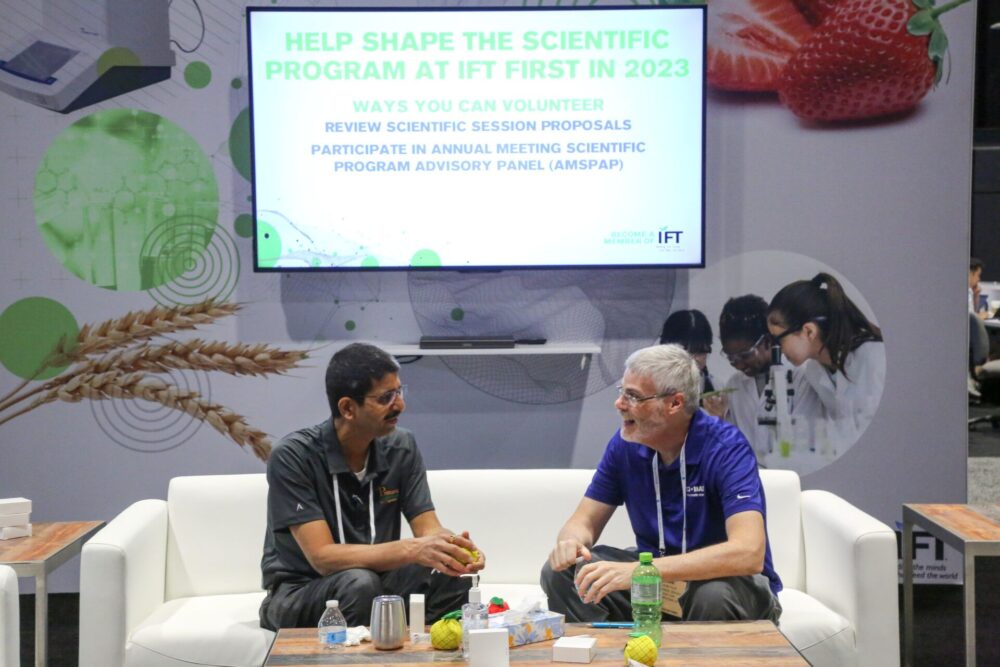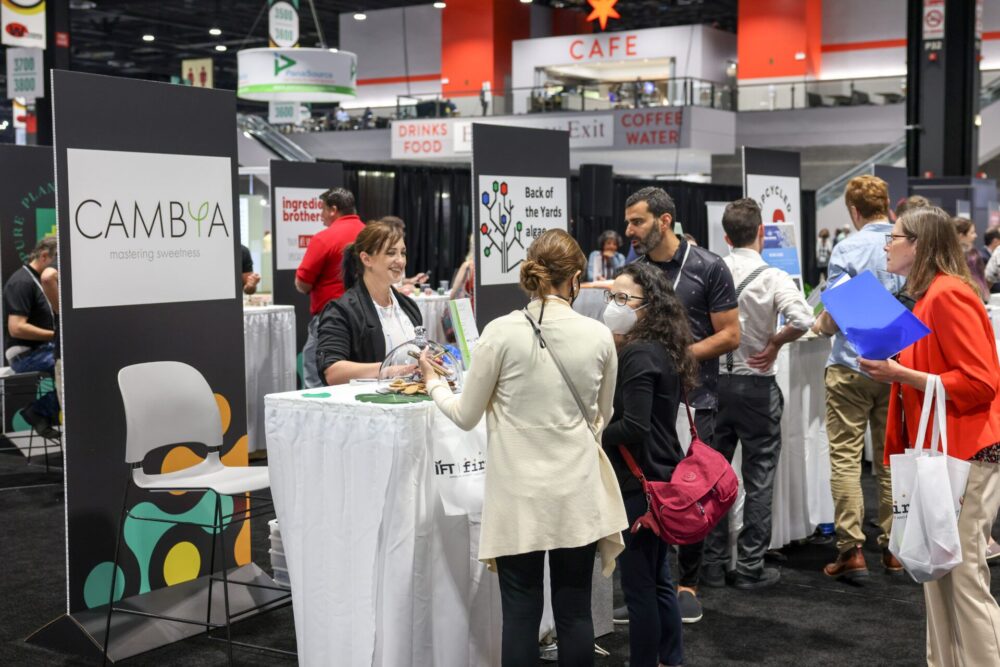Future-proofing a food system on the brink of crisis is a frequent topic nowadays. Supply chain slowdowns and the need to produce more food faster have spurred new innovations around the world. But these are often hampered by global crises and ever-more-complex research demands. Advancing the food system in the 21st century requires a hands-on approach to innovation that connects business and technology with deep science.
Institute of Food Technologists, better known as IFT, is a global community of scientists, technologists, food innovators, food safety and food science advocates engaged in advancing the science of food. This July they are holding their annual event, IFT FIRST. Aptly, FIRST stands for Food improved by research, science, and technology. The event is expected to garner roughly 17,000 attendees from over 70 countries.
The organization itself has existed since 1939. Connecting the global food system communities to promote and advance the science of food and its applications has remained the core mission of IFT through its 80-plus year history.
Nowadays, IFT does this through its community as well as through a series of online and offline events. The crown jewel of these events is IFT FIRST, an annual multi-day gathering in Chicago, Illinois. This year, IFT FIRST will take place from July 16 – 19, tackling the theme of Innovation in a Time of Crisis: Can we Future-Proof the Food System.

A ‘science-first’ approach to events
IFT FIRST is more than just the usual conference fare of panels and keynote speeches, the event focuses heavily on scientific insights and research in addition to industry solutions from business leaders.
“[The event] is the only place you can find true scientific advancements and technical expertise combined with the knowledge and experience presented at the expo and with the attendees,” says Leisha Nicol, senior director, integrated marketing and brand strategy at IFT.
For example, one of the more unique offerings taking place at IFT FIRST are 25 Scientific and Technical Forums, which includes 25 multi-disciplinary conversations focused on five key areas: novel technology and innovation, sustainability & climate, health and nutrition, food safety, and consumer insights and education.
The intent of these conversations is to leverage experts with diverse backgrounds and expertise to help connect the dots around what is being done to address some of the biggest challenges facing the science of food.
“Future-proofing the food system will require us to tap into the knowledge and expertise at our fingertips in unique and innovative ways” Jay Gilbert, IFT’s director of scientific programs and career pathways, says. “The Scientific and Technical Forums are structured so that it’s not just speakers and a moderator talking at attendees, but instead, encourages attendees to participate by asking questions, sharing their knowledge and insights, or debating one another about the future of our profession.”
Should attendees want to dive deeper into a specific topic that was discussed during the forum, each expert will have recorded a presentation on their topic that will be available to attendees post-event.
The inspiration for this format resulted from an analysis IFT did of past events where attendees said their most memorable experiences came from offstage interactions.
“It was all about ‘Who I bumped into in the hallway,’ all very human centric,” says Nicol. “Now, we’re offering many more ways for people to engage and intentionally network with one another. The scientific program has been restructured so that attendees engage with one another through discussion and debate.”
More interactive content can be found on the last day of IFT FIRST at the Innovation Lab. Here, attendees will be guided through a real-world product development experience where they’ll be challenged to come up with new products or concepts inspired by science presented at IFT FIRST. The overall event theme of innovating in times of crisis will challenge participants’ thinking about what we know and how we should address the crises of today and tomorrow.
“Now in its second year, the Innovation Lab is an ever-evolving experience for IFT FIRST,” says Gilbert. “The science aspect will be presented at the event and the Expo, creating a more immersive, almost museum-style experience. That allows people to do real product development with a select consumer.
Attendees will brainstorm different products that could be generated for that consumer. They will learn about different challenges that the consumer faces as well as the different scientific and technical advancements that are addressing those challenges.
“This will allow people to walk away with better product ideas to help advance the science behind different solutions,” says Gilbert.

Bringing the community together
Networking is a hugely important part of IFT FIRST. As Nicol notes above, IFT has reimagined the event to be more intentional about how it provides space for these interactions, so that they happen throughout the event and not just randomly in conference hall corridors.
The networking portion of IFT FIRST includes a lengthy list of curated meetups, mixers, technical field trips and other gatherings by both professional and personal affinity groups.
That includes Braindate, a peer-to-peer engagement platform where registered IFT attendees can interact with others within and outside their area of expertise to get questions answered. The idea is to provide businesses and innovators a way to connect with prospective mentors, collaborators and staff, or simply get questions answered that will help advance business.
A total of 100 food and food tech businesses from around the global will participate in IFT FIRST’s Startup Pavilion. Participants will showcase their solutions to some of the world’s greatest food system challenges while taking part in a speed-pitch competition where startups will vie for more than $15,000 in cash prizes, presented by Seeding the Future Foundation.
IFT FIRST will also include nearly 500 scientific posters and a Research Showcase Stage where 22 winners of the Division Graduate Student Research Competitions will present; another 13 research presentations will come from pre-tenured faculty and grant project awardees.
Additionally, eight keynotes and featured sessions along with fireside chats and Business FIRST sessions will focus on trends and topics in applied science.

Beyond the event: the IFT community
Future-proofing the global food system requires year-round action and interactions, something IFT addresses outside of its events through the IFT community.
The global IFT community exists to support researchers, product developers, students, and innovators as they work to create faster safer, higher quality and lower cost solutions to the world’s most pressing food challenges, from improving food safety to addressing chronic disease.
IFT offers a variety of membership options to best accommodate an increasingly diverse set of players in the food system, from those just interested in networking to companies that need more supportive resources with which to innovate faster.
All of this is driven by the current set of issues the global system faces: increased inflation, supply chain challenges and climate change, to name just a few.
“All of these crises are coming to a head, and our science of food community has a real need to understand how they can address these different crises and learn from one another,” says Nicol.
“We’re excited to continue to provide a platform for our community to come together and to make sure that they’re preparing for whatever might come next.”
For more information and to secure your spot with early pricing for IFT FIRST July 16-19 which will be held at McCormick Place, Chicago click here.




